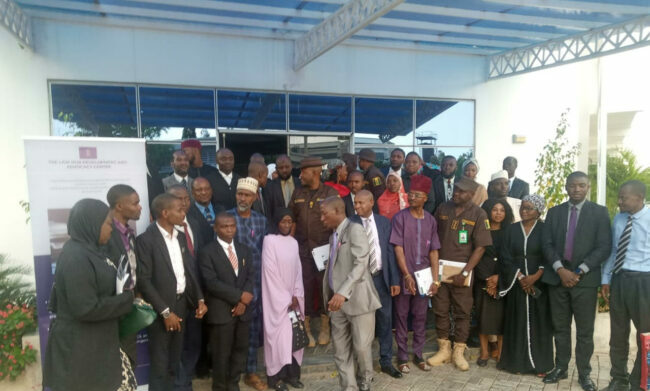Bauchi State Government has been urged to, as a matter of urgency, provide the necessary technical and logistical support and facilities for the criminal justice stakeholders, including training, computers, cars, and others.
The call was contained in resolutions reached at the end of the Bauchi State Training and Assessment Workshop on the Administration of Criminal Justice Law (ACJL).
The resolution and recommendations were read by the representative of The Law Hub Development and Advocacy Centre and facilitator of the training workshop, Joshua Dada.
It was also recommended that criminal justice stakeholders spend time reading and understanding the ACJL, stressing the need to increase the number of lawyers in the Bauchi State Police Command as the police force in this state only has three (3) lawyers, which is very low.
There is also a crucial need to increase the manpower of criminal justice actors within the state and across all institutions, as well as great synergy between the Police and the Ministry of Justice, especially in areas involving remand procedures, legal advice, drafting of charges, etc.
The police hierarchy should ensure coordination, especially in the area of arrests of persons within the state by officers of the police who come from outside the state, just as there is a need to enlighten the police DPOs on the fact that women can stand as sureties for bail.
The ACJL should be reviewed in line with constitutional provisions and should be purged of inconsistencies, as there is a dire need to strengthen the capacity of the ACJMC to help them better coordinate the implementation of the ACJL.
Also, each institution present should write reports and make recommendations to the various stakeholders within their institutions, while the Chief Judge should direct judges and magistrates to conduct oversight visits to police divisions and other places of detention.
The Chief Judge should either amend the existing practice direction or make a new one to clear out the area of ambiguity in the existing practice direction, which prohibits judges and magistrates from giving judgement on any objection raised until the time of delivering the final judgement.
The Chief Judge and other principal stakeholders should concert efforts in making complementary laws, which would help in the complete implementation of the ACJL. Such complementary laws include Sentencing Guidelines and Plea Bargain Practice Direction.
Also, funding should be made available by the government to the criminal justice stakeholders, who should meet frequently in order to facilitate collaboration and synergy.
It was further recommended that judges, magistrates, state counsels, defence counsels, etc. should encourage the use of plea bargains not only for economic and financial crimes.
The Correctional Service should ensure to promptly render returns of those in its custody awaiting trial for a period of 180 days and above to the Chief Judge, Attorney General of the State, and other persons so designated in the law to receive this return so as to deal with the complaint of extremely protracted detention of persons awaiting trial.
All private security outfits should also be engaged in workshops of this nature, as they also get involved in some aspects of criminal justice based on the work they do.
Also, READ THESE TOP STORIES FROM NIGERIAN TRIBUNE
